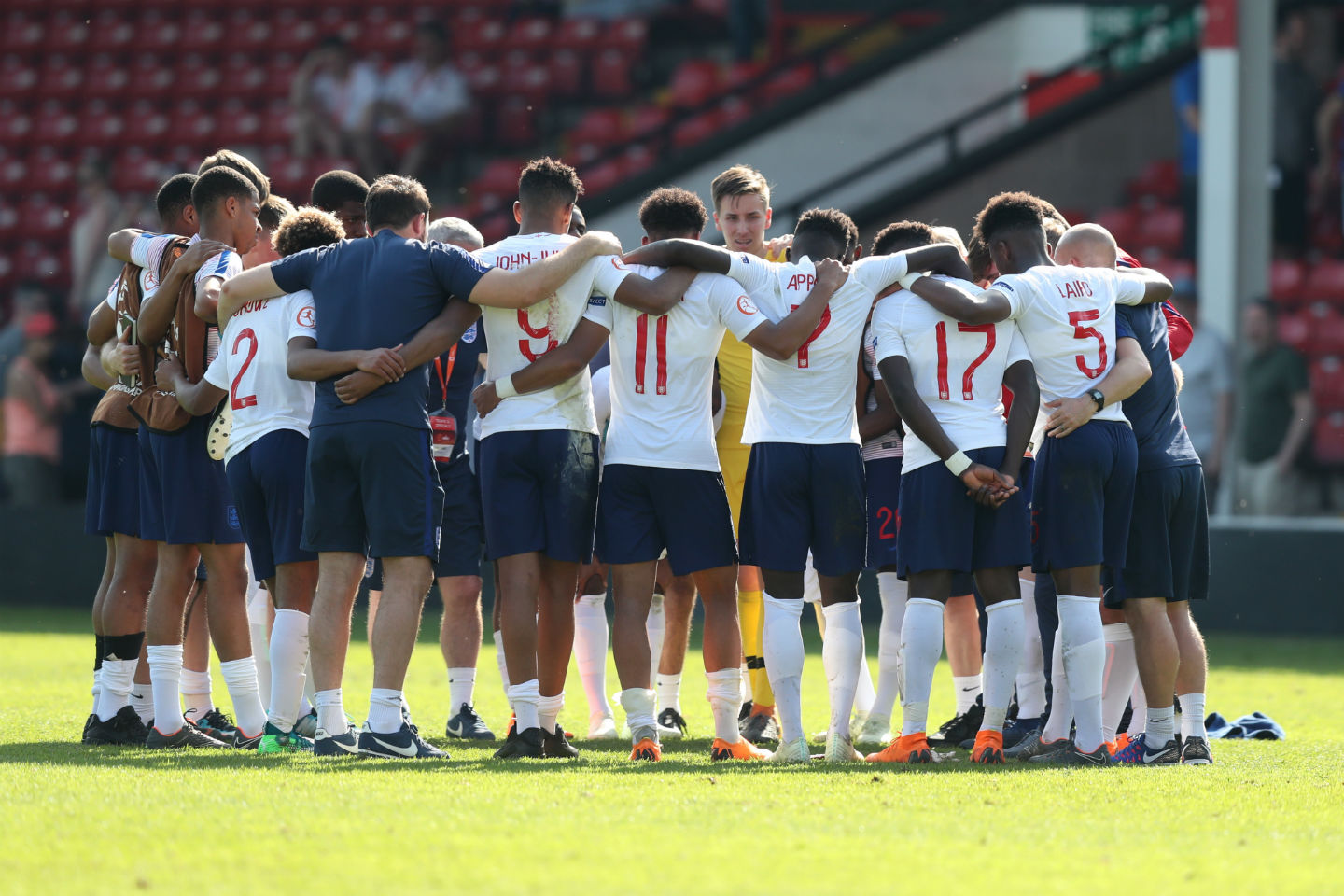England insight

Redefining success for young England players
- The Boot Room
- 30 April 2018
Matt Crocker, FA head of development team coaching, explains how England U17s will define ‘success’ at this summer’s European U17 Championship.
England U17s will be doing everything possible to win the UEFA European Championships on home soil this May. However, getting their hands on the trophy will not be the only measure of success.
Focusing solely on winning can be detrimental for the long-term progression of players who are still part of England’s ‘development’ pathway, explains Matt Crocker, FA head of development team coaching.
“The objective we set for the U17s isn’t to win a major tournament, because history shows that if the only objective is winning then teams tend to only pick the bigger, stronger, quicker players.”
Instead, the focus for England teams from U15-U20 is the ‘exposure and opportunity’ that comes from involvement in competitive tournaments.
“The reason we don’t say our younger age-groups should win the World Cup or win the European Championships, is because it’s the experience of being in the tournament which is the key for development. Qualification is always the major objective.
“A tournament gives the players exposure to a variety of challenges and different experiences. For example, last season our U17s were away in India for 35 days playing in intense humidity.
“They played in front of 75,000 people in huge stadiums against some of the best teams in the world. They also had a taste of taking penalties in a big competition. All those experiences will prepare them for the future.
“We need to get to the tournaments for them to have the exposure and opportunity for different experiences,” explains Crocker.
Although this year’s U17s are unlikely to experience soaring temperatures, there will be other challenges to conquer, such as the expectations that come with being the host nation. The tournament is being held at a number of venues across the Midlands, including St.George’s Park.
Crocker explains that across the England age-groups the players who will get the experience of playing in tournament finals might not necessarily be the same players used in qualification.
“Sometimes your qualification squad might look different to your finals squad, because there are some players – those with the highest long-term potential - who you feel might benefit from going to those tournaments. However, they might not have been involved in all parts of qualification."
The focus on development for England's young players extends off the pitch as well
The objectives for each England age-group are determined at the start of the season and communicated clearly with the staff and players involved, explains Crocker.
“We break the development pathway down into phases: youth development [15-17s], professional development [18-20s] and then senior professional phase [21s and the senior team]. The reason we call it a development pathway [before 21], is that it’s about ‘development’ – it’s not a ‘winning’ pathway.
“Our hope is that the pathway provides the players with a number of building blocks so when they do get to the senior team they feel as prepared as they possibly can be to produce a successful performance.”
The focus on development for England’s young players extends off the pitch as well. Crocker explains that some of the boys involved in next month’s tournament are facing the challenge of representing their country at the same time as completing their GCSE’s.
“Being away with England is very much about holistic development as well.
“We look carefully at whether the player, family, school and club are all aligned to provide a supportive programme that allows performance in tournaments, but also academically.
“There’s a lot of decision-making and communication between the player, the parents, the school and the club to ensure we are doing the right thing for the player across all areas of their life.”


























